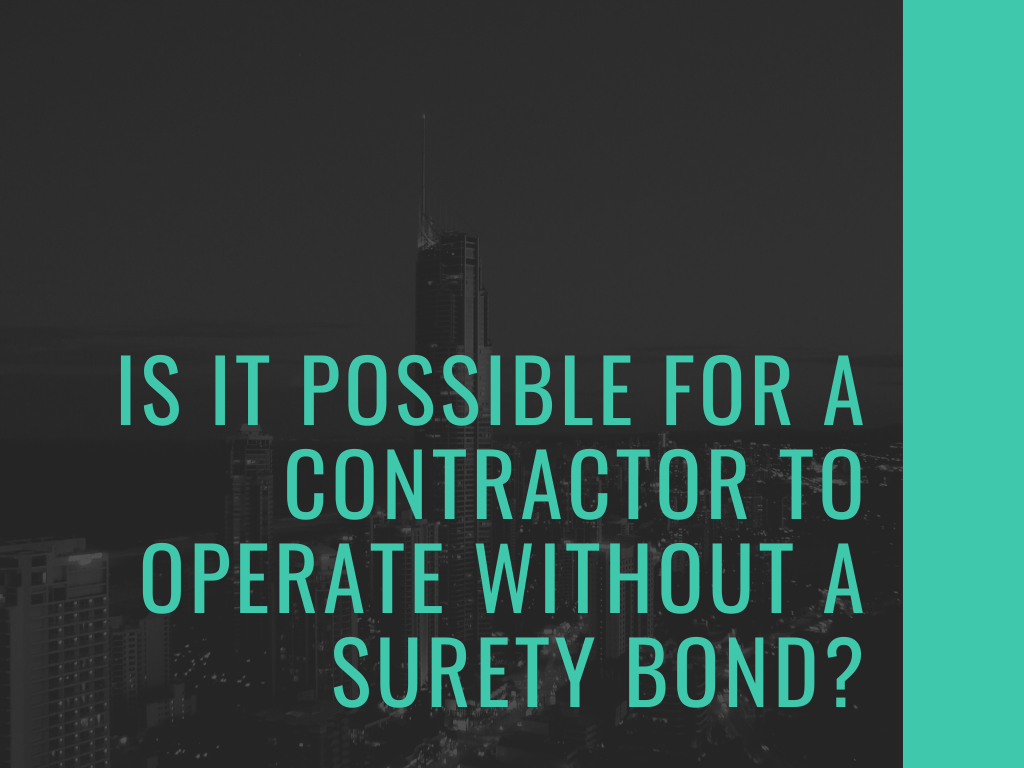Why are contractors need to be bonded?
Contractors are required to be bonded in specific circumstances. It’s preferable to be safe than sorry since it protects the contractor, the owner, and the subcontractor. When working on a project with several contractors, it’s easy to lose track of who performs what and how much money is owing where at the end.
If you don’t have an agreement made up by all parties involved, you may have some unhappy customers down the road if your contract isn’t detailed enough. This might result in legal action over payment arrangements or losses sustained during building projects if you hired various contractors to accomplish different tasks.
What are the benefits of becoming a bonded contractor?
Contractors are required to be bonded for a number of reasons. It safeguards your workers, subcontractors, and customers who rely on you to complete a task or do labor for which you have been compensated in advance. If you don’t have this protection, you risk losing everything, including your reputation and whatever trust people have placed in you. If this happens frequently, it might be devastating, therefore consider the following benefits of being bonded as a contractor:
- Employee safety comes first.
- Protection of Subcontractors
- Protection of Suppliers
- Contractors’ Security
Because of their nature, certain contracts are risky, especially if they include subcontractors you are unfamiliar with. Some of them may turn out to be ‘cowboy’ outfits that don’t pay their bills on time or leave town after taking your money. Although this protects them, it does not protect you, the contractor, who has lost everything and has not been compensated.
Is there a requirement for a contractor bond?
A construction license bond may be referred to as an “indemnity agreement,” “performance and payment bond,” or any similar term. These bonds protect homeowners in the event that you don’t finish the task on time or do a poor job.
Your homeowner’s association dues will help pay for these claims if you leave town without paying your subcontractors and suppliers, and they sue you and win. These costs may be astronomical, undermining the construction budgets of all homes.
A contractor licensing bond protects your business name, trade name, address, and other information, in addition to homeowner’s association dues. For bigger construction projects, many general contractors get a contractor license bond to safeguard the project from harm caused by the work. They may also purchase a commercial surety bond and other forms of insurance to safeguard their business and clients from financial loss.
What happens if a contractor’s bond isn’t in place?
Customers must be protected from financial damages caused by bad or inadequate work by contractors who are bonded. If a project went over budget due to poor workmanship, homeowners and business owners would have no way of recovering their expenditures without bonding.
If you hire a contractor without proof of bonding, your best bet is to end the contract right away and locate someone who satisfies your requirements. If this seems like too much trouble, it’s time to reconsider if this relationship is worth keeping in the first place, because you’ll still need someone to make up for your loss.
Is accepting projects without first getting a surety bond legal?
The bonding company’s objective is to provide financial protection to the owner in the event that your contractor defaults on the project or fail to complete it, causing harm or loss of value.
Accepting a task without a surety bond asks your contractor to purposefully expose himself or herself to potential damages via his or her actions with no redress. A contractor that takes this risk believes they have better expertise and abilities for completing work on time, on budget, with excellent quality and following all constructor commitments, and you should believe the same!
Accepting a project without a surety bond has additional benefits: it allows you to start projects sooner. A contractor may be keener to embark on your job because there is no obligation for bonding. Bonding can cause projects to be delayed for days, weeks, or even months as the owner waits for their bonds to be processed by the bonding company (this time frame varies from state to state).
